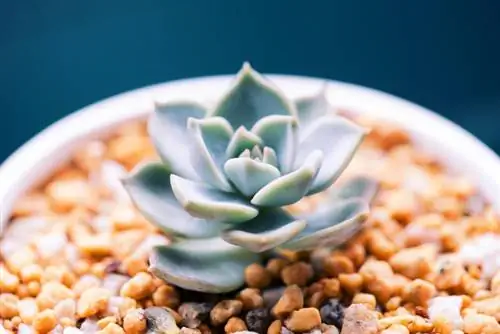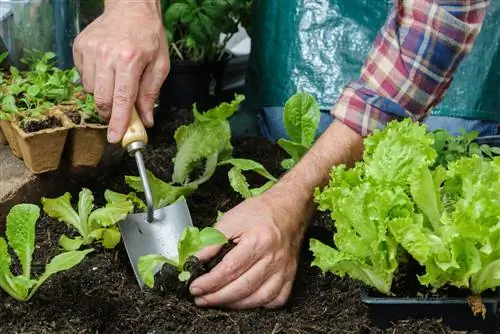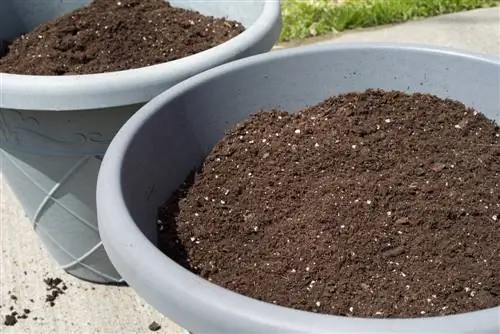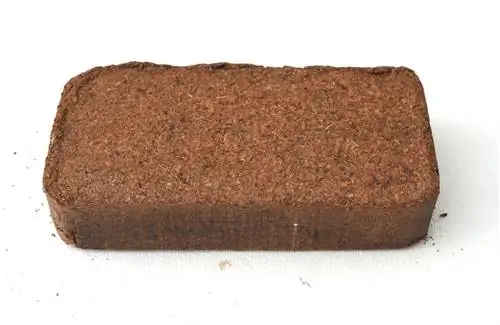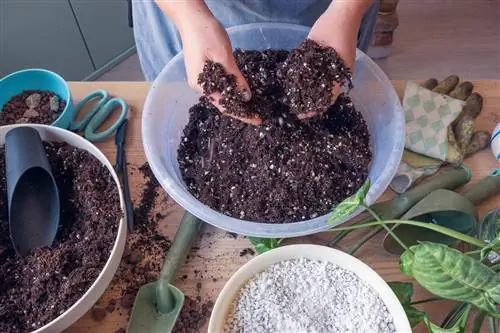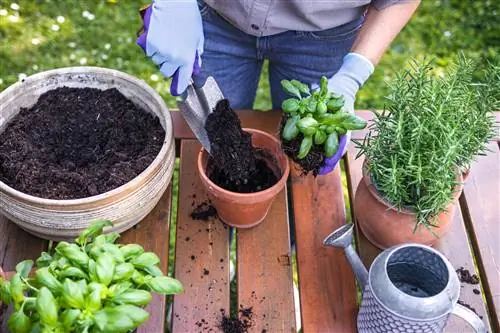- Author admin leonars@hobbygardeners.com.
- Public 2023-12-16 16:46.
- Last modified 2025-01-23 11:19.
The agaves, which are not originally native to Europe, have now become an integral part of the landscape of many coastal regions on the Mediterranean. Interestingly, these plants in these areas often thrive in particularly exposed locations with relatively poor living conditions.
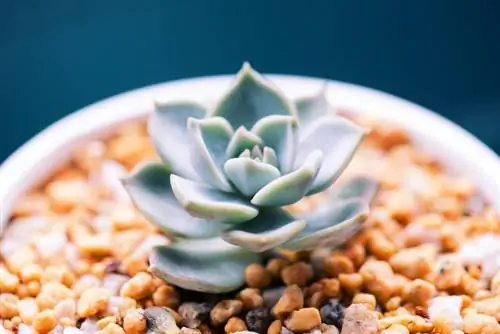
Which soil is best for agaves?
A well-drained substrate consisting of two thirds potting soil and one third quartz sand, pumice gravel, lavalite or lava granules is suitable for the agave plant. Avoid waterlogging as this can cause yellow leaves or plant death.
Plant agaves in suitable substrate
Basically, agaves are not particularly demanding when it comes to care and can cope with different locations as long as they are as sunny and warm as possible. When repotting the agaves or planting them in the garden, make sure that the location is a substrate with the best possible water drainage. You don't necessarily have to buy special cactus soil (€12.00 on Amazon). You can also mix two-thirds of regular potting soil with one-third of the following materials:
- Quartz sand
- Pumice gravel
- Lavalit
- Lava Granules
Open-pored materials such as lava stones promote ventilation and water drainage of the material and also ensure a permanently crumbly floor structure.
Agaves don't like waterlogging at all
If the soil remains waterlogged, agaves can develop yellow leaves or even die completely. Therefore, specimens that have been overwintered outdoors should be planted at an angle and protected from too much moisture. A plant pot should always have a coarse drainage layer made of stones or pottery shards in the lower area, and water drainage must be ensured through holes in the pot.
Tip
If you use commercially available potting soil to plant the agaves, it should not contain any peat (not only for environmental reasons). Since peat stores all water very well, it has a rather harmful effect on the growth of succulent agaves.

